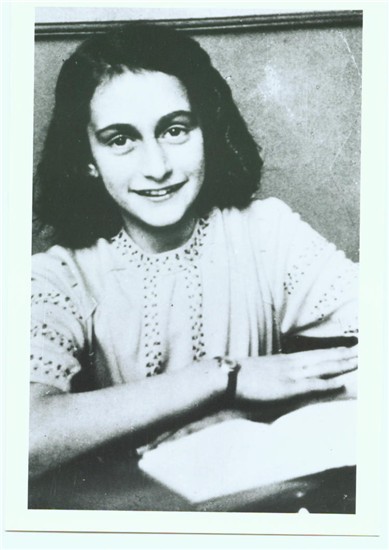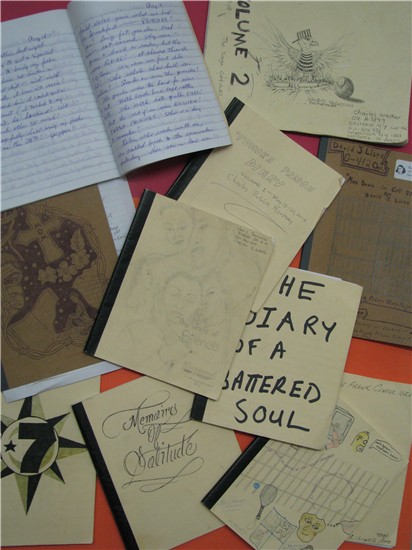 @AFS/AFF, Amsterdam/Basel.
@AFS/AFF, Amsterdam/Basel.
@AFS/AFF, Amsterdam/Basel.
How can we use the diary to practice freedom? Maureen McNeil of the Anne Frank Center USA bears witness to the power of diary-keeping in prisoners’ lives.
I believe that we have to practice freedom to be free. Diary writing is one way to practice freedom—there is no mandatory form, topic, or style, only that one must do it regularly. When Anne Frank sat down to write in her diary, labels and prejudices dropped away: she was no longer a persecuted Jewish girl, but a human being making choices, critiquing the world around her, taking responsibility for herself, setting her own moral compass. This was the goal of The Anne Frank Center USA’s (AFC) Prison Diary Writing Project, in collaboration with PEN American Center, which started three years ago.
Today, prisoners from more than 30 U.S. states read Anne Frank’s diary, write their own journal, and send it to The Anne Frank Center to archive for educational purposes. Being incarcerated is lonely, scary, regimented, boring, and often dull or violent, but prisoners also write that freedom on the “outside” seems scary. Anne Frank gives them to hope that they too can do something good with their lives, even while doing time.
About half of the prisoners state in their diaries that making wrong choices and not accepting responsibility for their actions is the reason they landed in prison. The other half of the prisoners write that they’ve never been loved, don’t think they’ve ever loved anyone, never had a home and have been incarcerated since they were teenagers.
 Excerpts from the diaries are read aloud on radio programs, at fundraisers, at the PEN World Voices Festival, and published in articles, books and online. Last spring, The Anne Frank Center created a diary exhibit which included forty-eight prison diaries, 5 incarcerated youth diaries and the diaries of author Mary Morris, Dada poet Valery Oisteanu, diarist Zlata Filipovic, Holocaust survivor Clara Kramer, Freedom Writer Laura Guzman, young filmmakers, artists and high school students. It was a celebration of a shared human experience and underscored the fact that if we want to solve the problems of the world, we need to hear everyone’s story.
Excerpts from the diaries are read aloud on radio programs, at fundraisers, at the PEN World Voices Festival, and published in articles, books and online. Last spring, The Anne Frank Center created a diary exhibit which included forty-eight prison diaries, 5 incarcerated youth diaries and the diaries of author Mary Morris, Dada poet Valery Oisteanu, diarist Zlata Filipovic, Holocaust survivor Clara Kramer, Freedom Writer Laura Guzman, young filmmakers, artists and high school students. It was a celebration of a shared human experience and underscored the fact that if we want to solve the problems of the world, we need to hear everyone’s story.
Anne Frank is considered by many to be the conscience of twentieth century thought. This is because as a girl she wrote a diary of such beauty and truth that it is a literary work of art; and because she was brutally killed by an educated, elected, charismatic and evil leader of the western world simply because she was Jewish. Unfortunately, prisons don’t contain evil—it is part of us. Perhaps this century, by practicing freedom and accepting responsibility, we as a global world will learn to make better choices.
Maureen McNeil is the Director of Education at the Anne Frank Center USA, a not-for-profit organization that promotes the universal message of tolerance. In addition to her work with the Prison Diary Writing Project, McNeil has introduced countless students to the power of diary keeping through the example of Anne Frank.
